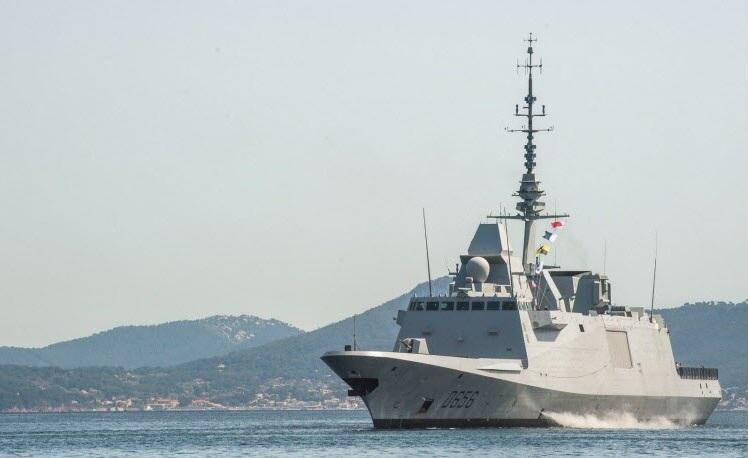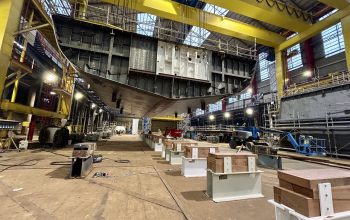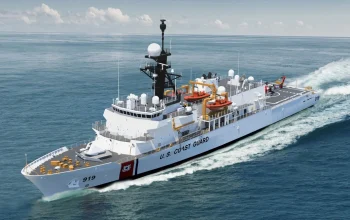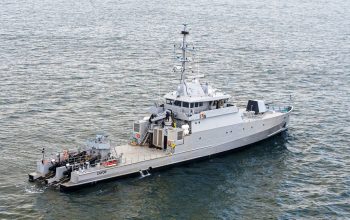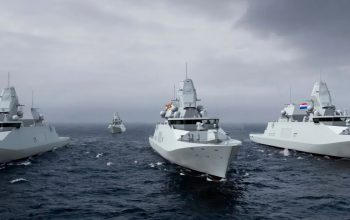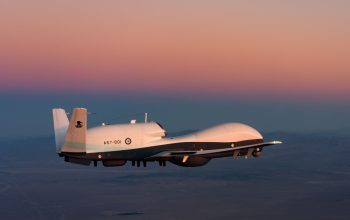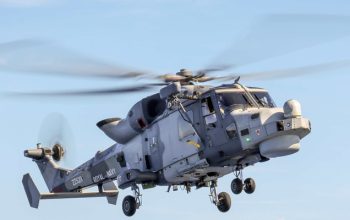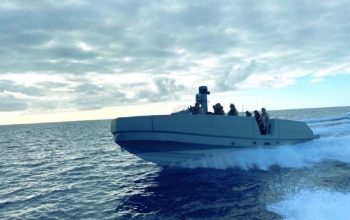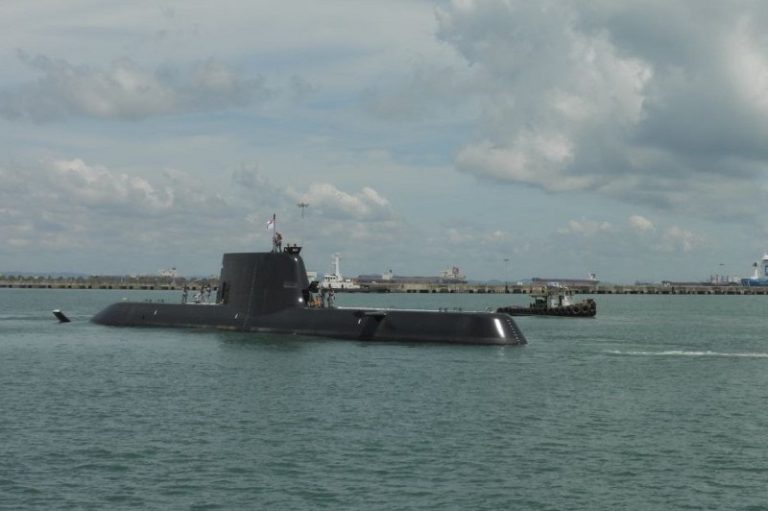The Minister of the Armed Forces of the French Republic Florence Parly salutes the entry into active service of the frigate Alsace. The Alsace is the seventh multi-mission frigate to join the ranks of the French Navy. An eighth frigate of the same type, the Lorraine, is currently undergoing tests, with acceptance scheduled for the end of 2022. On 22 November, the first multi-mission frigate with reinforced air-defence capability (FREMM-DA), the Alsace, was admitted to active service in the French Navy. The seventh ship built under the FREMM program, the Alsace is now available to conduct operations. The FREMMs delivered to the French Navy since 2012 (Aquitaine, Provence, Languedoc, Auvergne, Bretagne and Normandie) are multipurpose ships with outstanding anti-submarine warfare capabilities. The FREMM-DAs have the same anti-submarine capabilities as the FREMMs, but also possess anti-aircraft, area defence and air operations control functionalities thanks to combat system upgrades, an optimized slim-line mast and an increased radar detection range, as well as an additional ten crewmembers.
The Minister of the Armed Forces of the French Republic Florence Parly said: “The Alsace is ready for operations. She belongs to a cutting-edge class of frigates recognized worldwide for their combat capabilities. In the current strategic environment, it is essential that we renew the capabilities of our national navy: in the face of obstacles to freedom of navigation, in the face of attempted intimidation at sea, in the face of the desire to deny access to certain zones, France needs a strong, effective and credible Navy.”
The first steel of the FREMM DA Alsace was cut in 2016, and she was launched in Lorient on 18 April 2019. Armed Forces Minister Florence Parly took delivery of the Alsace on 16 April 2021, when the frigate arrived at her home port of Toulon after a succession of dockside and sea trials. There followed a period of shakedown trials for the frigate and her crew, providing an opportunity to test out her military capabilities in contact with the aircraft carrier Charles de Gaulle and the nuclear attack submarine Suffren. On 17 November, with the success of her first firing of an Aster 30 anti-aircraft missile, all of the Alsace’s operational capabilities were finally validated. She now joins the other FREMMs that form the backbone of the surface fleet.
The FREMMs are the flagship programme in the renewal and modernisation of the French Navy. These frigates are stealthy, multipurpose, resilient, flexible, with advanced automation systems, and optimized crew size. Their main missions are to control a maritime operation zone, above and below the surface, to support and assist force-projection operations, and—for the first six frigates in the class—to offer a precision deep strike capability against land targets with the naval cruise missile. They operate the Caiman Marine helicopter, which has a particularly well developed anti-submarine warfare capability and can embark on the Écume rigid inflatable boats of the marine commandos. France’s 2019-2025 military programming law provides for the delivery of the eighth and final FREMM, the Lorraine, in 2022. The renewal of the French Navy’s first-rank frigate component is set to continue with the Defence and Intervention Frigates (FDI) programme, due to make its first delivery in 2024. By 2030, the French Navy will have 15 first-rank frigates: eight FREMMs (including two FREMM DAs), two air defence frigates (FDAs) and five FDIs.


